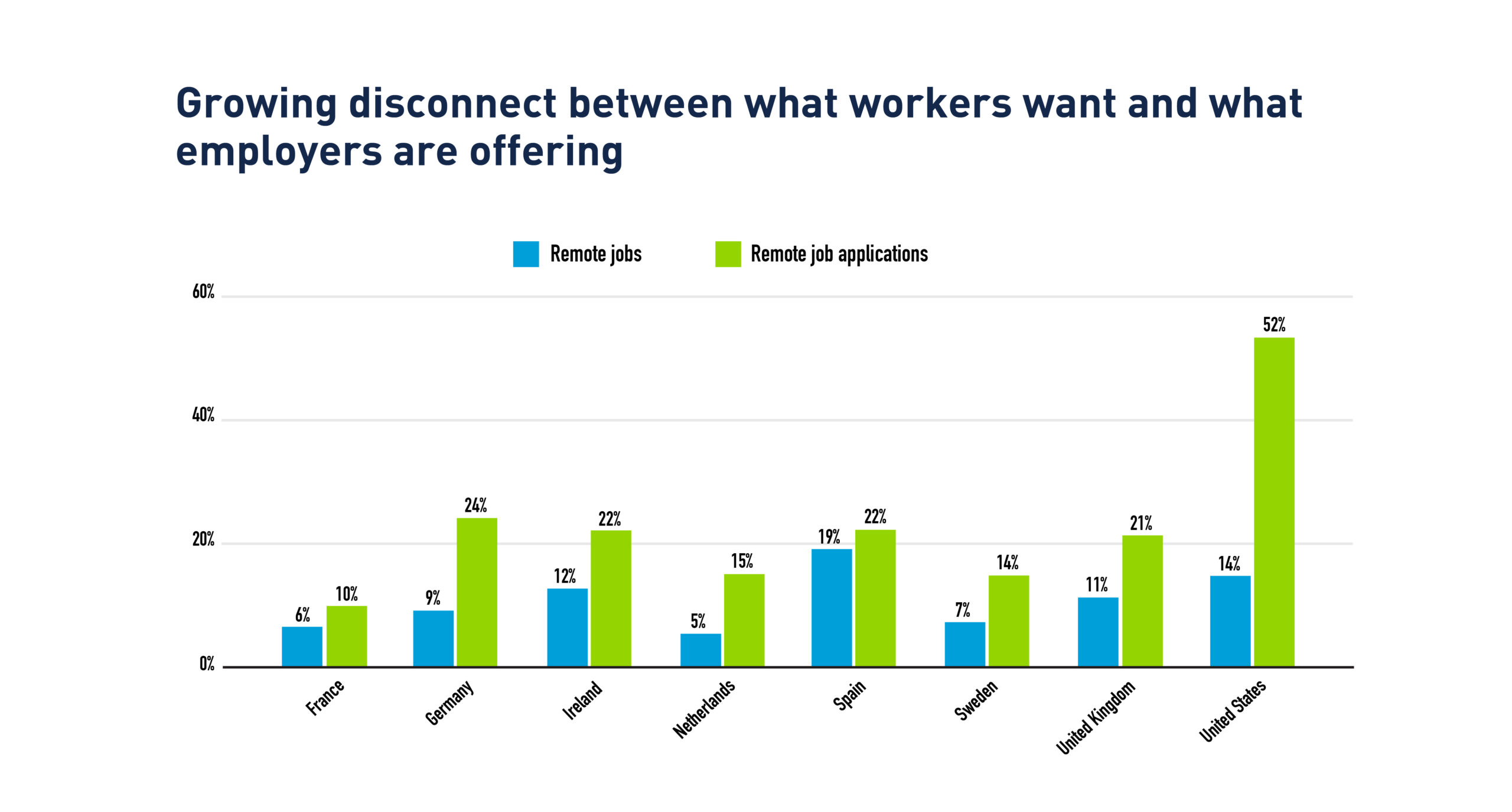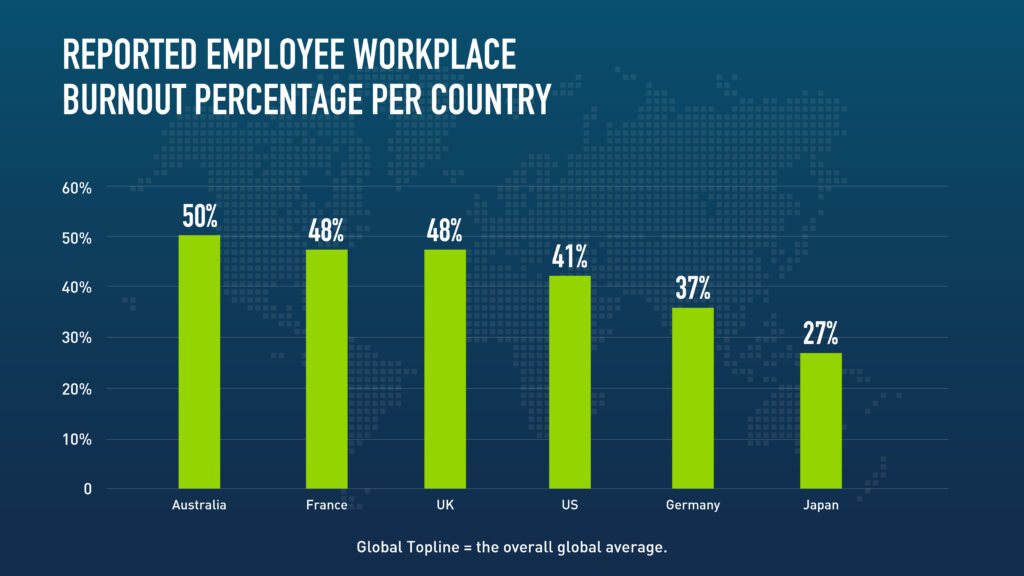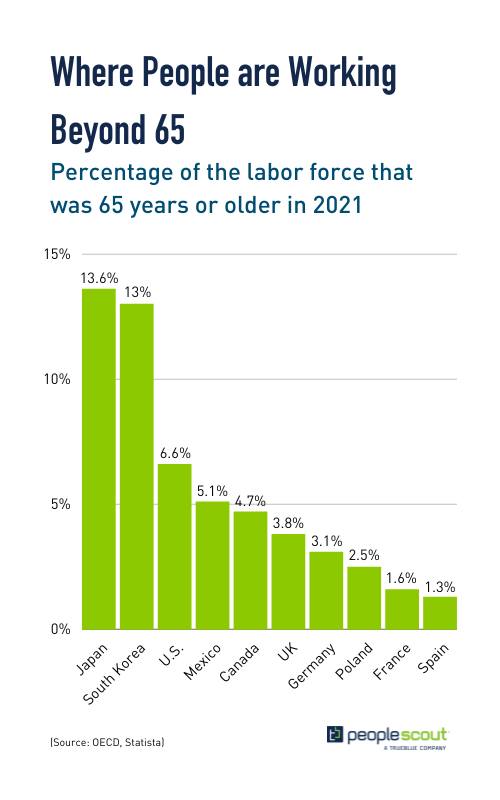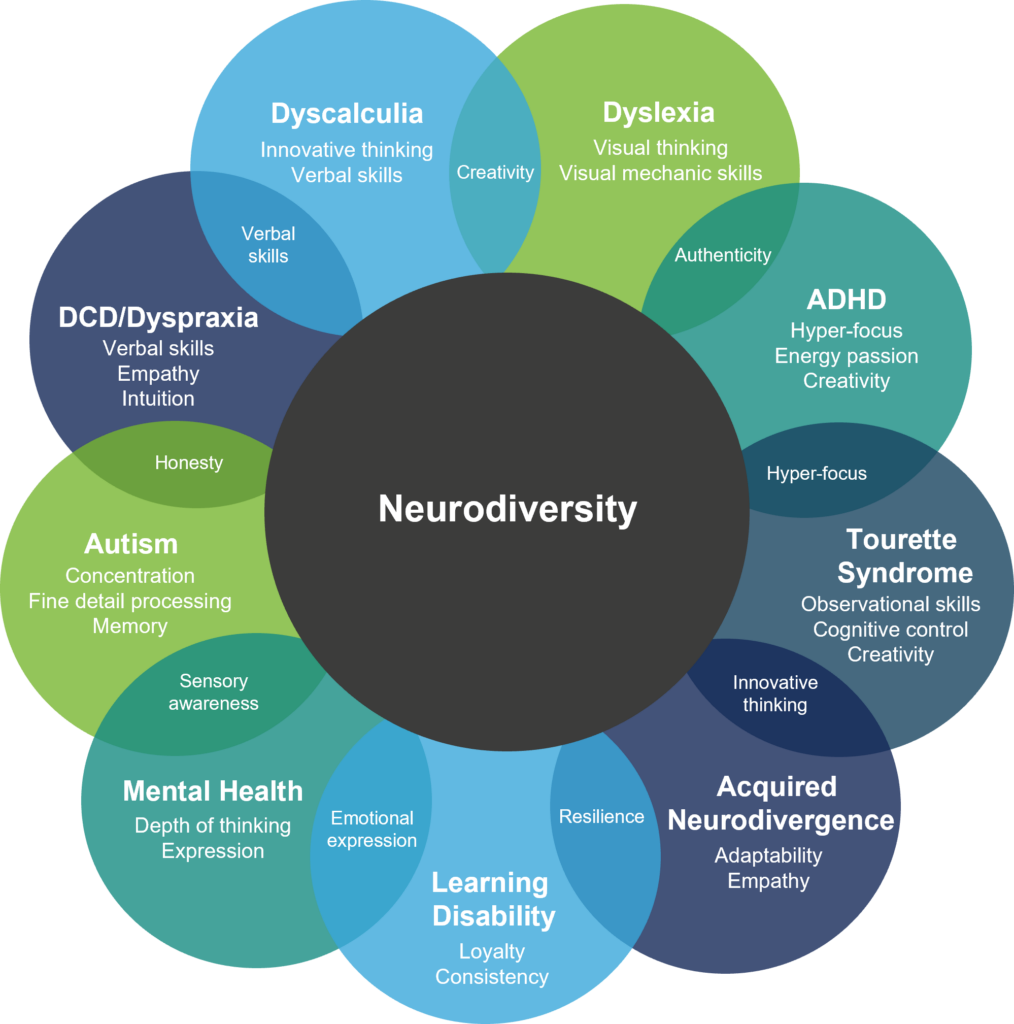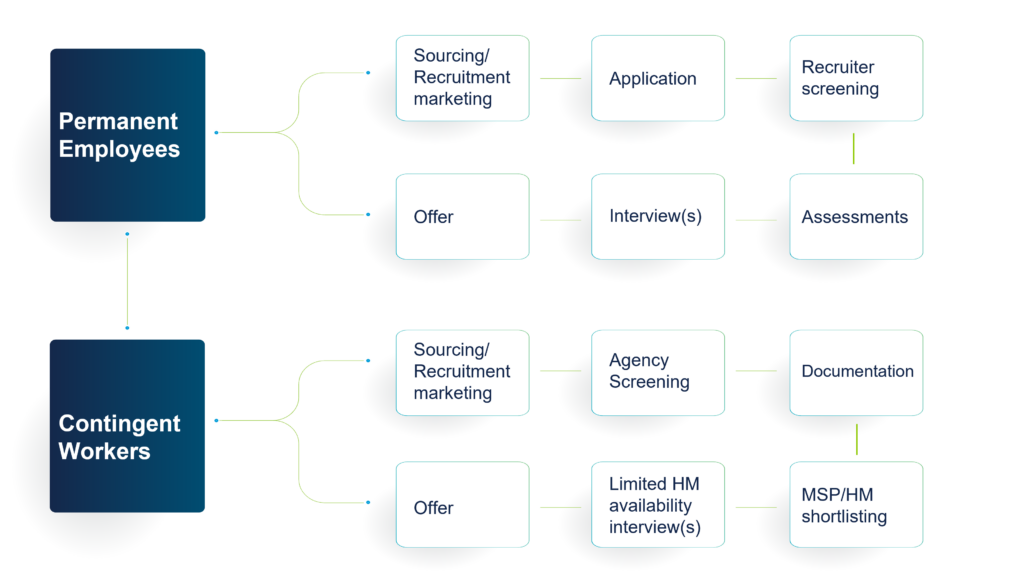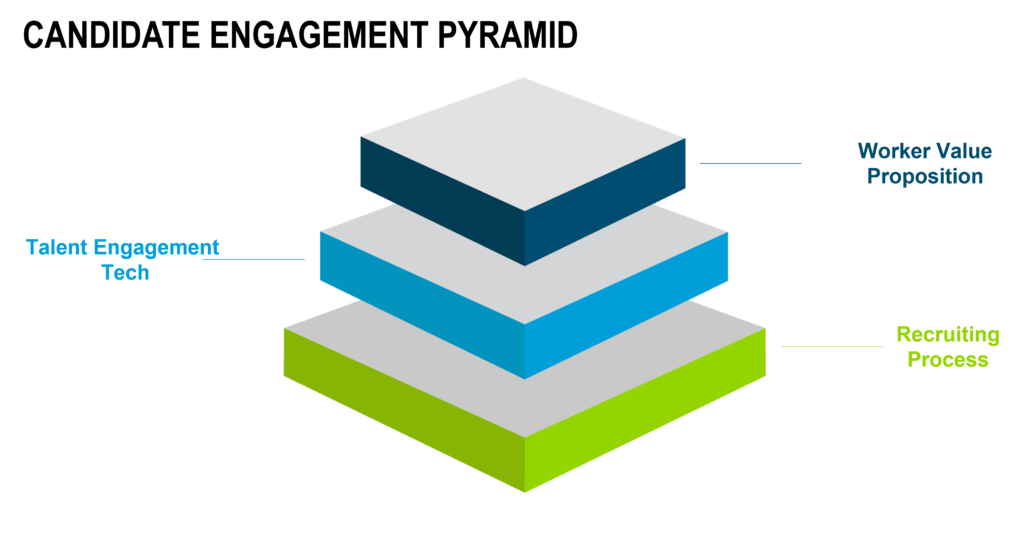By Tim Powell, Managing Director, APAC
Neurodiversity in the workplace has become a much bigger part of the wider discussion about diversity, equity and inclusion (DE&I) at work over the last decade. While the neurodistinct community still experiences prejudice and misperceptions, the cultural wave of “neuroinclusion” and advocacy is driving a number of companies to change their hiring practices in order to attract cognitively diverse talent.
Neurodiversity has taught us that diversity and inclusion are about more than age, gender, race, religion and physical ability. DE&I is about ensuring different points of view and different experiences are valued. Indeed, Nancy Doyle, an organizational psychologist and neurodiversity advocate, argues we’re all differently abled in some way. We all have different experiences and perspectives that we bring to the table.
In this article, I’ll explore what embracing neurodiversity in the workplace means for employers and offer some practical advice for creating a neuroinclusive environment.
What is Neurodiversity?
Judy Singer, an Australian sociologist, coined the term neurodiversity in 1998 to promote “a political and civil rights movement” for the advancement of “neurological outsiders.” The term refers to the concept that everyone experiences and interacts with the world around them differently. A neurodivergent person’s brain may work in a different way than the average “neurotypical” person. They may have unique ways of learning, communicating, socializing or perceiving their surroundings.
An estimated 15% to 20% of the world’s population exhibits some form of neurodivergence. While neurodiversity is often used in the context of autism spectrum disorder (ASD) and Asperger’s syndrome, many conditions fall under the neurodivergent umbrella, including ADHD, dyslexia, dyspraxia, Down syndrome, Tourette syndrome, and even mental health conditions like bipolar disorder, OCD and social anxiety. However, people with these conditions may also choose not to identify as neurodivergent.
Research Report
Identifying Recruitment Pitfalls to Improve DE&I Outcomes
Why Neurodiversity in the Workplace is Important
We all understand by now that diversity at work improves business performance, and neurodiversity in the workplace is no different. While some neurodivergent traits, like difficulty with organization or sensory issues, pose challenges in traditional work settings, neurodivergent people have unique strengths that offer myriad benefits to employers.
Neurodiverse professionals often have special skills in pattern recognition, analysis, mathematics and more. In fact, neuroinclusion is strongly tied to innovation. Cognitively diverse teams, consisting of both neurodivergent and neurotypical employees, are more creative, make better decisions and solve problems more efficiently.
They’re also more productive. According to Deloitte, research suggests that teams that include neurodivergent professionals can be 30% more productive than those without neurodivergent members. Through their Autism at Work program, JP Morgan Chase has found that cognitively diverse employees are 90% to 140% more productive than neurotypical employees and make fewer errors.
In her TED Talk, “The world needs all kinds of minds,” autism activist and prominent animal behaviorist Temple Grandin says, without autism “there’d be no more Silicon Valley, and the energy crisis would not be solved.” In our world of technological advancements and automation, the advantages of neurodiversity in the workplace have never been greater.
Neurodivergent Candidates: An Untapped Talent Pool
Despite these benefits, neurodivergent people are far more likely than neurotypical people to struggle with unemployment. It’s estimated that as many as 85% of college-educated autistic adults struggle with unemployment in the United States. According to the Office for National Statistics (ONS), just 21.7% of autistic people in the UK are employed and are the least likely to be in work of any other disabled group. In Australia, 70% of new starters with disabilities do not survive the probation period and 65% of Australian businesses are unsure how to access this pool of workers.
Neurodivergent individuals can sometimes struggle with interpreting nonverbal cues, facial expressions or tone of voice. Sometimes this means they display what may be considered inappropriate behavior for the workplace, like excessive honesty or difficulty maintaining eye contact. This runs contrary to what many corporate cultures think make a good employee—having good communication skills, emotional intelligence and relationship building capacity.
Most hiring processes are built for neurotypical candidates. Whether we’re conscious of it or not, interviews tend to focus on evaluating social skills and confidence. This may be relevant for some job roles but may not be a genuine need for others. This puts some neurodivergent applicants at a great disadvantage, particularly when high emotional intelligence isn’t required for success in the role.
In the next section, I offer some practical changes you can make to your hiring program and recruitment processes to support the success of neurodivergent talent.
“Inclusion is a social, moral and economic imperative. We all lose when human potential is squandered.”
Dr. Nancy Doyle, CEO and Founder, Genius Within CIC
How to Foster Inclusion for Neurodiversity in the Workplace
So, how can you make your workplace more neuroinclusive and create a recruitment process that ensures neurodiverse candidates are more likely to be successful? Here are some tips:
Make Neurodiversity Part of Wider DE&I Strategy
At the vast majority of organizations, hiring people with disabilities or cognitive differences is often a sporadic initiative rather than a structured program. To achieve success, it can’t be a pet project of HR or any one person. Rather it should become a part of your larger workplace DE&I initiative.
Objectives
The first step in building out a sustainable neurodiversity hiring strategy is to be clear on your objectives. It could be to support corporate social responsibility with an inclusiveness focus; to access a wider talent pool in a tight labor market; or to enhance workforce efficiency and effectiveness. Whatever the objectives, the whole organization must buy into the program and have the right expectations. So, communicate your goals and objectives widely and secure strong, visible and consistent support from senior leadership.
Audience
Often, we see that organizations don’t think through how a person with a disability might perform their duties. When organizations define a talent persona for each job type, and target those individuals from the outset, employees are much more successful. This in an opportunity to test your assumptions about job roles and explore the impact if an employee didn’t certain skills. Your selection criteria must be justifiable and define what is essential to succeed in the role.
Once you’re clear on the skillsets you’re looking for in each role, targeting the audience becomes easier. To help with sourcing neurodiverse candidates, you might consider seeking help from an outside partner who can help you think through the art of the possible and drive informed choices.
Train
Education and diversity training in advance of a neurodivergent colleague starting, or in the very early stages of onboarding is important to ensure they’re successful in their new role. Talking to managers and other team members about the characteristics and preferences of a neurodiverse person is entirely appropriate if it’s done in a way that is sensitive to that individual’s privacy and dignity. In fact, it’s critical these conversations take place, so your teams understand in advance what they can expect with their new colleague. For example, throwing a person with autism into a group meeting and asking them to say something about themself is likely not going to be a comfortable experience for them. If managers know this ahead of time, they can make informed decisions about how to introduce their neurodiverse new hire to the team. Moreover, when employees know that their new neurodiverse co-worker may not make eye contact, they’re less likely to take it personally.
Rethink Your Recruitment Process
One reason I’ve seen neurodiversity in the workplace fail is because the recruitment process is not sufficiently tailored to the needs of neurodivergent candidates. The focus must be on assessing basic competencies and characteristics as well as a candidate’s capacity and willingness to learn, rather than how well they interview or even their previous job experience (as neurodivergent candidates often have less employment history).
I caught up with our UK-based Assessment Design team, comprised of organizational psychologists, to understand more about how they’re helping clients create more equitable assessment experiences. They shared that because the interview and assessment process can often be complex—varying by role and company—there is no “silver bullet” and each situation should be addressed on a case-by-case basis, especially since many neurodivergent people are undiagnosed or may choose not to reveal their diagnosis to potential employers.
Interviews
Interviews in particular can be a challenging prospect for neurodiverse candidates. While most organizations won’t eliminate interviews altogether, they shouldn’t be the only consideration. They should be balanced with other evaluation techniques, and, for candidates who require adjustments, you might consider weighting interviews so they count for less in the overall candidate appraisal.
Prepare to offer reasonable adjustments for the recruitment process as neurodivergent candidates in particular will likely need to deviate from established processes. This could mean changing the location or of an interview or allowing for a screen reader during an online assessment exam. Another example of an adjustment is to put the interview question into the chat during virtual interviews to make the experience more accessible. Keep in mind that any adjustments you make for the recruitment process should be adjustments you’re prepared to offer in the workplace as well.
At PeopleScout, we provide experienced assessors who can act as a neutral third-party in interviews which can help to reduce bias in the scoring.
Blended Assessments
The PeopleScout Assessment Design team recommends a blended assessment approach consisting of multiple styles of question, allowing candidates different ways to show their potential. These blended assessments have the added benefit of giving candidates a realistic preview of what the role and organisational culture is like. For example, for a large international airport, the bespoke 1XP experience we created an immersive experience in which security officer candidates had complete various tasks, including “spotting the difference” between images, to test their ability to catch potential security issues in the airport.
Communication
Regardless of whether candidates have requested adjustments or not, should always clearly communicate with candidates the steps of the recruitment process, what’s expected of the candidate at each stage and what’s coming up next. All candidates appreciate this, but neurodivergent candidates in particular may benefit knowing what to expect upfront.
Adjust the Working Environment
Beyond experiencing issues with workplace etiquette, neurodiverse employees often struggle with sensory challenges, like sensitivity to light or sound. Modern office environments with open floor plans or noisy warehouses or shop floors can prevent neurodiverse employees from being successful in their work.
Consider offering flexible seating arrangements, quiet places for breaks or noise cancelling headphones. When feasible, remote work is a great option for some neurodivergent employees. Be prepared to adjust lighting or make adaptations to a neurodiverse employee’s workstation. Even changing a uniform to have a softer fabric can make all the difference for a neurodiverse worker. For employees with learning disabilities, assistive technologies, like screen readers, or video trainings can help them complete onboarding modules and job tasks.
There is no one-size-fits-all approach here. Just like neurotypical people, disabled and neurodiverse employees each have their own unique requirements and preferences for maximizing their productivity.
Consider Career Paths
Taking a long-term view of the development of disabled and neurodiverse employees is key to continued success of your program. One idea is to give neurodivergent employees a “buddy” or mentor that they’re comfortable with—outside of their direct manager. Having this extra person checking in on them is invaluable in retaining neurodiverse employees beyond the first three to six months.
It’s also important that organizations engage with their disabled and neurodiverse employees directly about what support they need and how they feel about their experience. Sometimes employers are uncomfortable asking those questions, but people with disabilities generally want to engage and are open to talking about what support they require. Of course, these conversations should happen in a way that honors the employee’s privacy and dignity.
Conclusion
My experience tells me that making disability and neurodiversity part of your DE&I strategy isn’t easy. If it was, more organizations would be further down the path. But it is worthwhile, not only to meet societal expectations, but because it makes good business sense. Start small, build confidence and scale. Neurodiversity in the workplace is a wonderful journey if you’re committed to it and plan appropriately.


